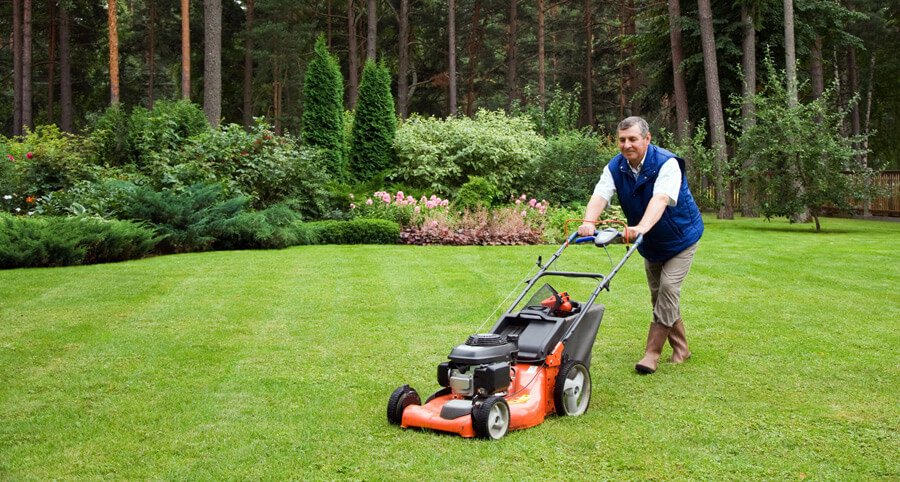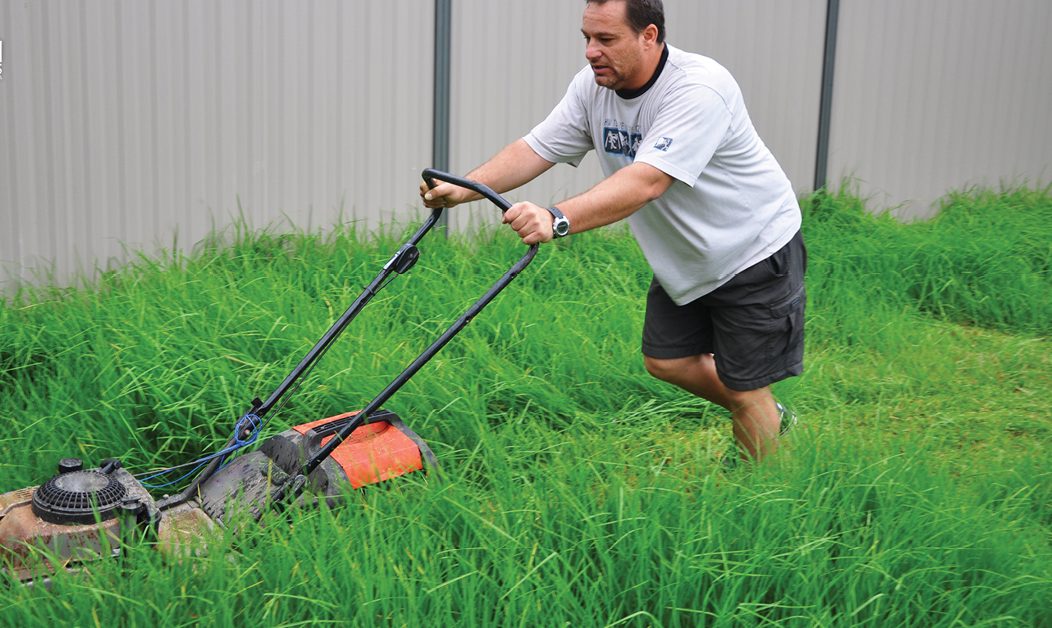Looking for a way to stay fit and active without hitting the gym? Look no further than your own backyard! Believe it or not, mowing the lawn can actually be a great form of exercise. Not only does it help you maintain a well-groomed lawn, but it also provides a surprising amount of physical activity. Here we’ll explore just how beneficial mowing the lawn can be for your health and fitness goals.
Contents
Is Mowing the Lawn Good Exercise?

When it comes to staying active, you may not immediately think of mowing the lawn. However, it may surprise you to learn that mowing the lawn can actually be a great form of exercise. With the combination of aerobic and resistance movements involved, it offers numerous benefits for your overall fitness and well-being.
Aerobic Exercise: Mowing the lawn requires continuous movement, which increases your heart rate and gets your blood pumping. As a result, it provides an excellent cardiovascular workout. Aerobic exercise not only strengthens your heart and lungs but also helps you burn calories and improve your overall endurance.
Resistance Exercise: Mowing the lawn can also be considered a form of resistance exercise. Pushing a manual mower or maneuvering a self-propelled one requires you to work against gravity and exert force. This resistance helps to build and tone your muscles, particularly in your legs, arms, and shoulders.
By combining both aerobic and resistance exercises, mowing the lawn offers a full-body workout. It engages various muscle groups and helps to improve your overall strength and flexibility.
Benefits of Mowing the Lawn as Exercise:
Here are some key benefits of mowing the lawn:
1. Cardiovascular workout: Mowing the lawn can provide a surprising amount of cardiovascular exercise. As you walk continuously and push the mower, your heart rate increases, making your heart and lungs work harder.
2. Full-body workout: Mowing the lawn engages various muscle groups in your body, making it a great full-body workout. From your legs and core to your arms and shoulders, mowing involves a combination of pushing, walking, and maintaining proper posture.
3. Strength and endurance: Mowing the lawn is a combination of aerobic and resistance exercise. While walking, you also push the mower against the resistance of the grass and any slopes in your garden.
4. Core engagement: The act of pushing and maneuvering the mower engages your core muscles. By maintaining proper posture and stability, you strengthen your abdominal and back muscles, improving your core strength. A strong core is vital for maintaining good posture and preventing back pain.
5. Stress reduction: Engaging in physical activity, such as mowing the lawn, can help to reduce stress levels. Being outdoors in nature, breathing in fresh air, and focusing on the task at hand can have a calming effect on your mind. It provides an opportunity to disconnect from daily stressors and promotes relaxation.
Calories Burned While Mowing:
It depends on a few factors such as your weight, speed, and gender. The formula used to calculate the number of calories burned per minute is MET x bodyweight in kg x 35 ÷ 200. Let’s break it down with an example.
For an average individual weighing around 180 pounds (approximately 81.6 kg), mowing the lawn on a riding mower can burn approximately 216 calories per hour. This activity has a MET of 2.5, which means it burns over two times as many calories as you do at rest. So, every minute you spend mowing the lawn, you’re burning around 6 calories.
To put it into perspective, if you mow the lawn for an hour, you can burn approximately 216 calories. This may not sound like a lot, but when you consider that every minute counts, it adds up over time. Plus, mowing the lawn is a full-body workout that engages various muscle groups and improves your overall strength and endurance.
What Muscles Do You Use When Mowing the Lawn?

Here’s a breakdown of the muscles you use when mowing the lawn:
- Leg Muscles: When you push the mower forward, your leg muscles kick into action. Your quadriceps, hamstrings, and calves are all involved in generating the power needed to move the mower across the grass.
- Core Muscles: Mowing the lawn requires stability and balance, which means your core muscles play a significant role. Your abdominal muscles, along with the muscles in your lower back and hips, are engaged to maintain proper posture and control as you maneuver the mower.
- Arm and Shoulder Muscles: Depending on the type of mower you’re using, your arms and shoulders may also get a workout. Pushing a hand mower or maneuvering a self-propelled mower requires the use of your biceps, triceps, and shoulder muscles.
- Back Muscles: As you push the mower forward, your back muscles, including the erector spinae, help to maintain an upright posture and provide support for your spine. Keeping your back straight and engaged can help prevent strain and injuries.
- Glute Muscles: Mowing the lawn also activates your glute muscles. These muscles are responsible for extending your hips and providing stability and power to your lower body movements.
Frequently Asked Questions:
What muscles does mowing the lawn work?
Mowing the lawn works the shoulder muscles, specifically the lower trapezius, serratus anterior, and other back muscles that stabilize the shoulder joint.
Why do I sweat so much mowing the lawn?
Sweating is the body’s natural way of cooling off. It is normal to sweat heavily after a hard workout at the gym or while mowing the lawn in the summer heat. The amount of sweat varies from person to person.

Hello, I’m Ravindra. Over the years, I’ve immersed myself deeply into the world of fitness and health, transforming both my body and mind. Writing has allowed me to share my journey, insights, and expertise with those just starting out and seasoned fitness enthusiasts alike. Beyond just routines and diets, I believe in inspiring others to adopt a holistic approach to well-being.
